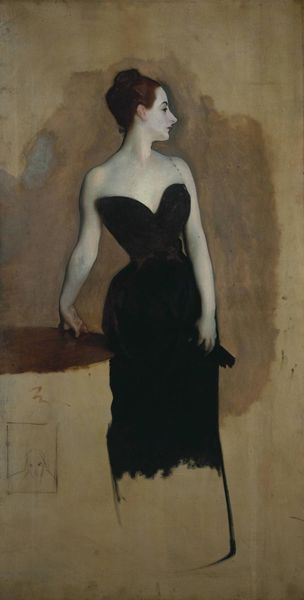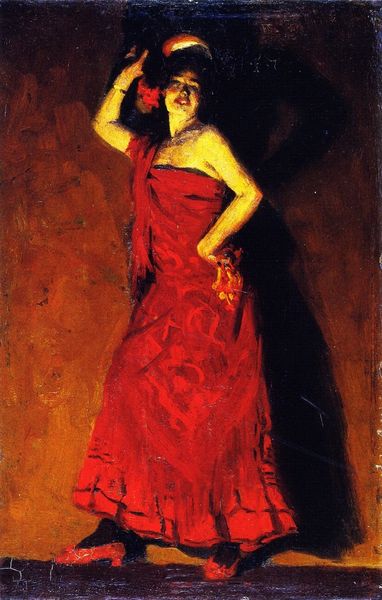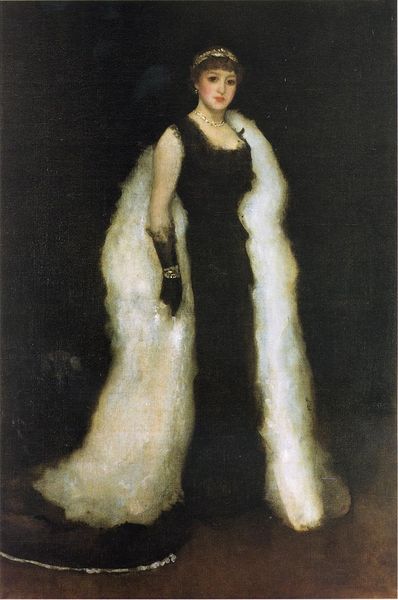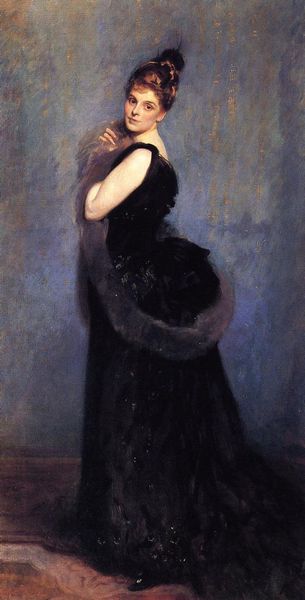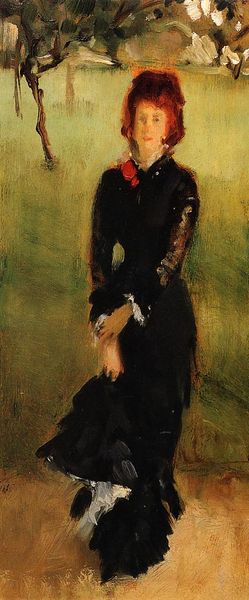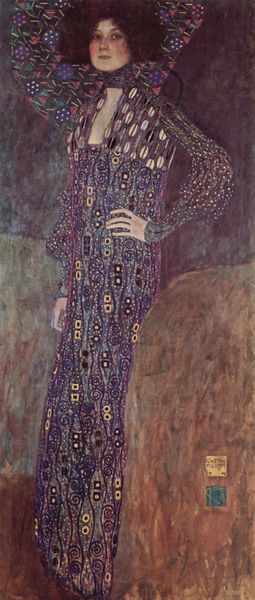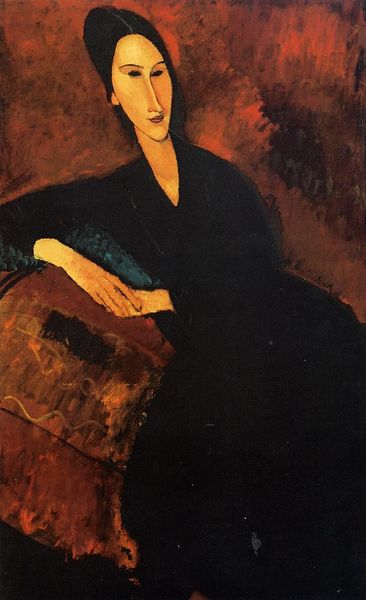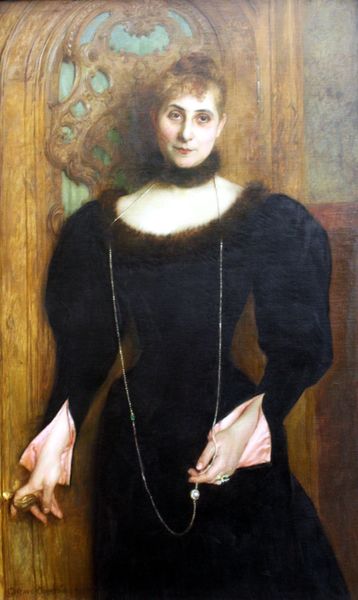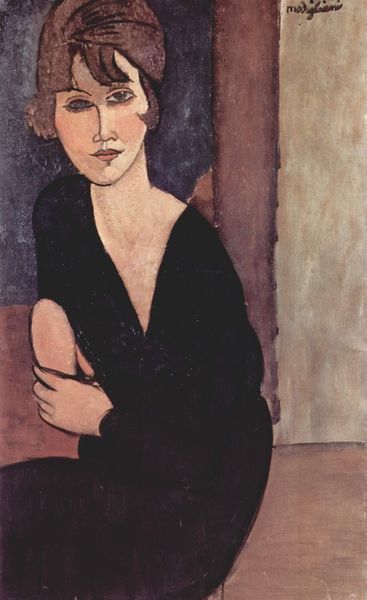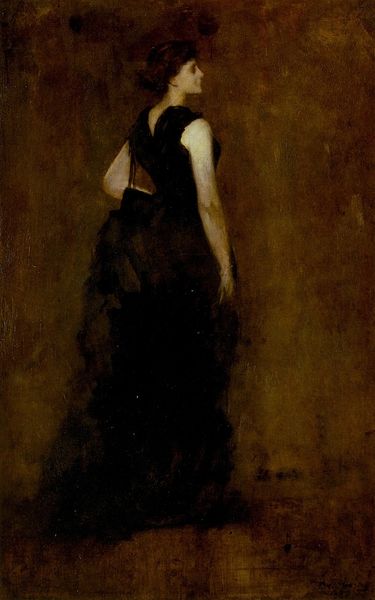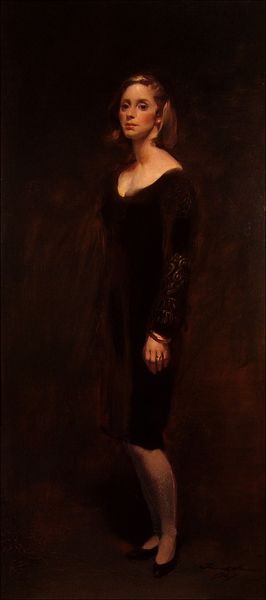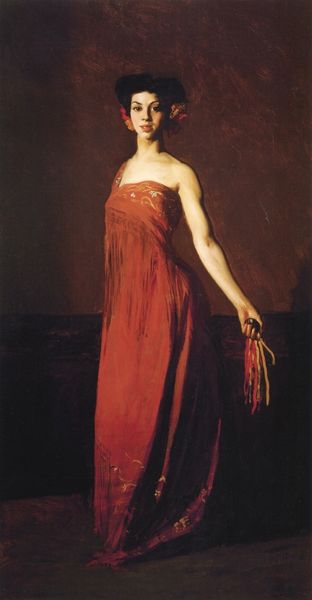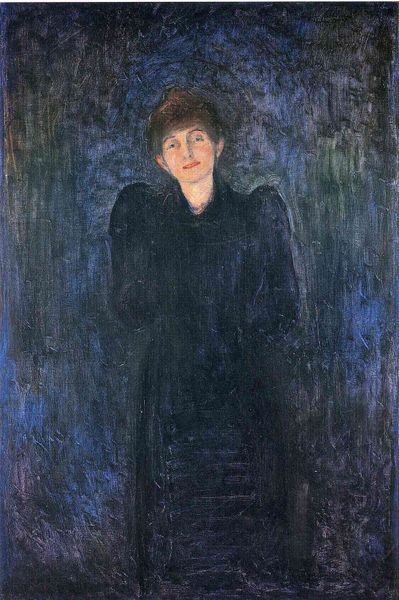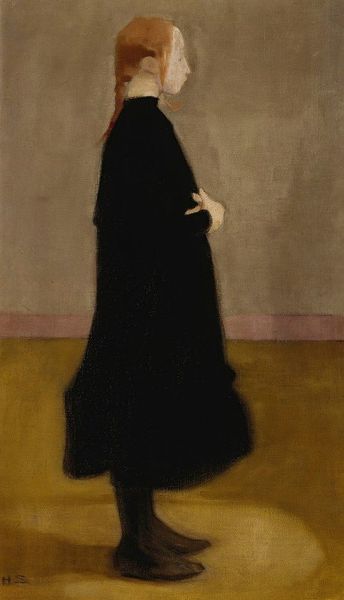
painting, oil-paint
#
portrait
#
art-nouveau
#
vienna-secession
#
painting
#
oil-paint
#
symbolism
Dimensions: 190 x 120 cm
Copyright: Public domain
Curator: Editor: This is Gustav Klimt’s 1901 oil on canvas, “Portrait of Rose von Rosthorn-Friedmann,” currently housed at the Belvedere in Vienna. I’m immediately struck by the stark contrast between the rich black dress and the vibrant blue backdrop. What do you make of this piece? Curator: Well, beyond its visual appeal, I see a portrait steeped in the societal tensions of early 20th century Vienna. Klimt, aligned with the Vienna Secession, challenged the conservative art establishment. What's your understanding of the subject's position within this cultural moment? Do you read anything in her pose? Editor: It seems like a conscious attempt to break from tradition. It's interesting you mention her position; I hadn't really considered that beyond a compositional element, the gaze is also pointed outside. But considering Klimt’s affiliation with the Secession, perhaps the choice of subject speaks volumes. Was she associated with the avant-garde? Curator: Rose von Rosthorn-Friedmann came from a wealthy, intellectual, and, importantly, Jewish family. Patronage was a key battleground for the Secession. Klimt's portraits allowed wealthy patrons a chance to assert progressive cultural identity, subtly pushing back against growing antisemitism and traditional hierarchies. How does knowing this change your interpretation? Editor: That context gives it a whole new layer of meaning! It's no longer just a portrait; it's a statement, a quiet act of defiance through art. And it places her within the fight for emancipation of thought that Klimt and other artists were spearheading in the Viennese Secession. It gives the image much more agency than it would at first suggest. Curator: Exactly! Art rarely exists in a vacuum, and by understanding its historical and social context, we can unlock so much more of its meaning. I appreciate how you took on board those themes from this painting and considered them as political statements. Editor: Absolutely! I will surely be thinking about art in the broader context in which it was made. It changes everything!
Comments
No comments
Be the first to comment and join the conversation on the ultimate creative platform.
